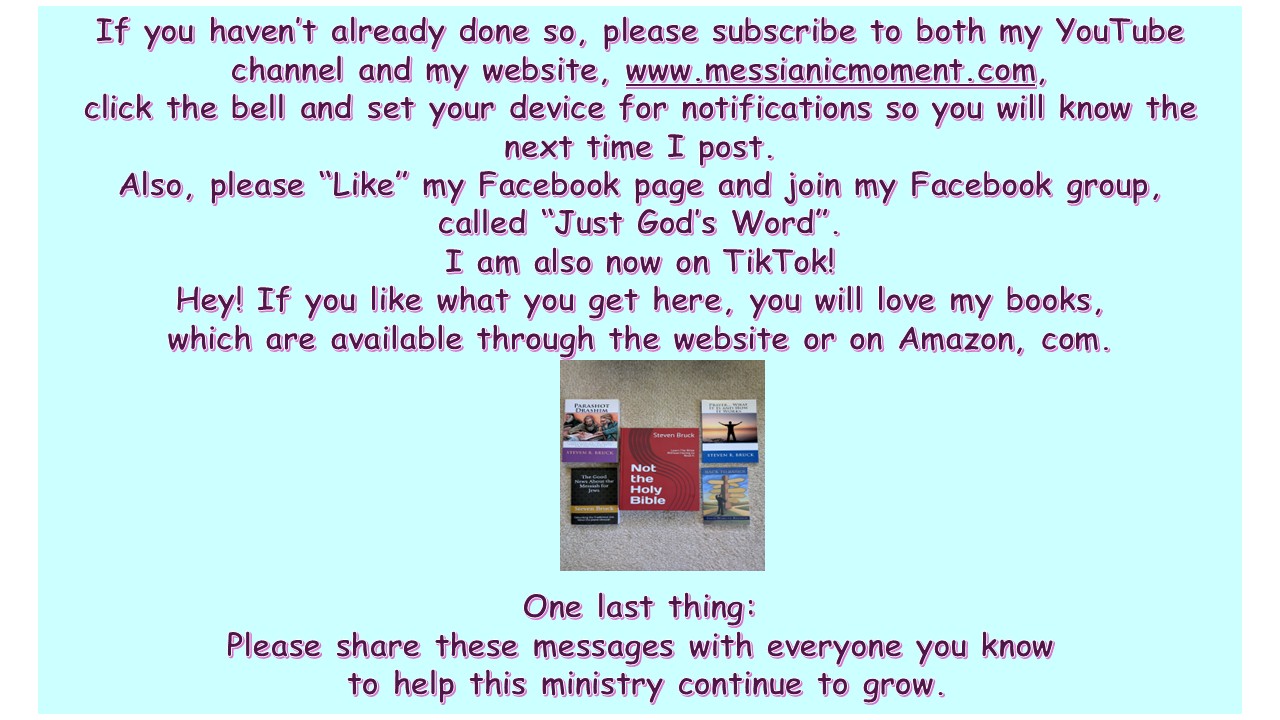“For what I desire is mercy, not sacrifices, knowledge of God more than burnt offerings.”
Hosea 6:6 (CJB)
OK, so does that mean nothing else matters?
If you prefer to watch a video, click on this link: Watch the video.

God also tells us he isn’t interested in sacrifices in Isaiah 1:11, Micah 6:6-8, Psalm 51:16-17, and Jeremiah 7:21-23.
Yikes! I guess Leviticus 1-7 doesn’t count any more.
That’s not so, and the only reason the sacrifices outlined in those chapters of the Torah aren’t done today is because the temple where they have to be performed has been destroyed.
I have often said, and will continue to do so, that taking a specific verse or passage out of context is a dangerous way to interpret the Bible, so let me assure you that the context of all the passages I cited above is the prophet (or psalm writer) pointing out that the people have been just going through the motions, performing sacrifices that were not truly from their heart. Using animals that were not correct, and sinfully worshiping other gods and goddesses just before coming to the temple and sacrificing to God.
In other words, they were practicing what Shaul (Paul) would call “Legalism”, which is assuming salvation can be attained solely through doing things as ordered, which is what I call a performance-based salvation.
God had the prophets tell this to the people as a way to correct what they were doing wrong, because God always does what he does in order to bring us back into communion with him. And what was wrong was that without faith, the works mean nothing.
And it’s possible that some of the people still faithfully believed in God, but because they were polluting their worship of Adonai with their worship of other gods, their faith was rendered useless.
You can’t work with fish all day and come home smelling nice; when you sacrifice to Ba’al, pour drink offerings on your rooftop to the Queen of Heaven, burn your children to Molech, then go to the temple and sacrifice to God, you reek of faithlessness and sin. And that stench prevents God from accepting you.
What the people didn’t understand, and why these messages were given to them, is that sacrifices to the false gods are worthless, but they make your sacrifice to the one, true God worthless, as well.
So, what does God want?
He wants obedience, but not from desire to earn salvation. He want us to do what he says because we are faithfully trusting in him. Trusting that he will do what he says, i.e. bless those who do as he commands (Deut. 28) and that he will forgive us when we ask for forgiveness, now through the sacrifice Yeshua made for us.
Yeshua didn’t do away with the Torah, just like when God said he doesn’t want sacrifice he didn’t mean never to sacrifice again. The message is that we should be obedient to what God says we should do because we trust that God tells us what to do for our benefit.
God will never steer us wrong, and he always directs us towards salvation. That’s what the Torah does- it tells us what is right and what is wrong, so that we can do what is right.
It’s really quite simple: ignore the way God said to worship him and to treat each other and you cannot be on the path to salvation. You probably will be walking alongside it at times, and you might even cross it now and then, but the path that ignores the Torah is the wide road leading to the wrong destination.
Do you check the news every day? That’s fine- there’s nothing wrong with being up to date on current events, but do you also read the Bible every day? I ask because there is a significant difference: the news tells you about where you are today, but the Bible tells you where you will be throughout eternity!
The Torah isn’t just a bunch of laws- it is the roadmap to salvation.
Let me leave you with this… ignore for a moment what your religion has told you, and ask yourself this question:
Why would God give us the Torah if it didn’t lead us to him?
Thank you for being here and please remember to share these messages with everyone you know, even non-believers. Hey, after all, you never know how fertile the soil is until you plant a seed in it.
That’s it for today, so l’hitraot and Baruch HaShem!
